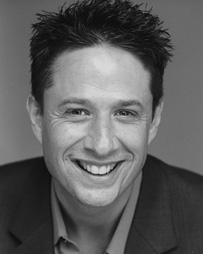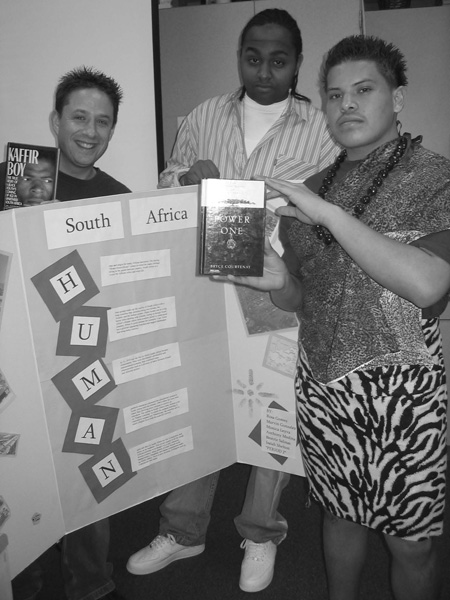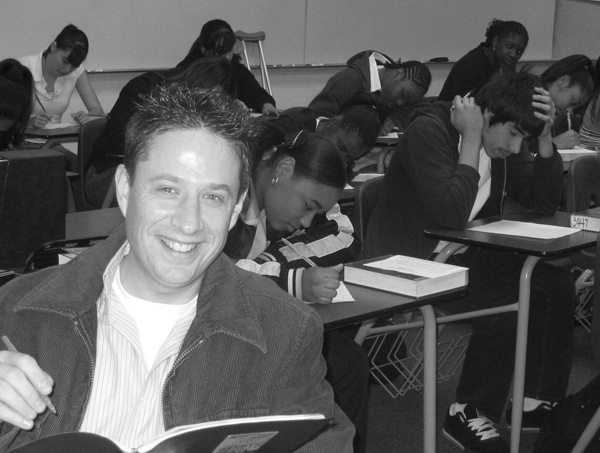
Yo, Hip-Hop’s Got Roots
See if you have ever heard of this celebrity. He’s been considered a danger to society. Wherever he went, scandal followed. Authorities denounced him. Critics blasted him. Mothers made their children cross to the other side of the street when he walked down their way. And the teenage girls . . . well, they loved him. (You know how teenage girls can be.)
Can you guess his name?
That’s right, I am speaking about Lord Byron, the English poet from hundreds and hundreds of years ago.
Okay, okay, you might have missed that one. Let’s try another.
He’s a celebrity. His work has been studied at Harvard. He uses literary tools such as symbolism, personification and onomatopoeia. Rumor has it that he has gone on mad writing sprees that lasted upwards of three days with no sleep, food or water (but I am pretty sure he must have taken a pee) and he swears he couldn’t care less if he ever earned a penny from his poetry because the fulfillment he received from writing it is more compensation than money could ever be to him.
Yep, you got it . . . Eminem.
That’s right, Eminem. You know who he is, don’t you? Then obviously you’re familiar with the extensive connection between these two incredible poets, right?
Well if not, you probably don’t know as much about Hip-Hop as you thought you did. You see, true fans of Hip-Hop know that it has deep roots in the world of classic poetry.
That’s right, classic poetry.
“YUCK!” I can already hear you say. “I HAAAAATE poetry.”
Well, let me ask you then, what is rapping if not a form of poetry? After all, rap uses all the same literary techniques the greatest poets of all time used when they were putting their own pen to paper.
LL Cool J uses hyperbole. So does Ralph Waldo Emerson.
Nas uses figurative language. So does William Wordsworth.
Kanye West uses irony, imagery and an awesome amount of awe-inspiring, astounding and astonishing alliteration.
(By the way, in case you weren’t paying attention in English class, alliteration is the repetition of the same or similar sounds in words that are close together.)
And guess who else uses alliteration? Yep, you got it . . . William “The Wondrous Word-Weaving Wonderboy” Shakespeare.
That’s right, Kanye West and William Shakespeare use the exact same poetic tools as one another to practice their mutual literary craft. So much so, in fact, that if Ole Shakesey was alive today, he’d probably have a pumpin’ video on MTV.
(But to be fair, if Kanye West was living during Shakespeare’s time, he’d probably be wearing those whacked-out pants that made all men look like sissy ballerinas.)
Wouldn’t that be something to see?
Okay, okay, I’ll be the first to admit, some classic poetry stinks. I don’t like it all. Instead of being forced to read it, I’d rather go to the dentist . . . without Novacaine!
But some Hip-Hop stinks, too. You know what I’m talking about. The kind that is so bad you need to get it out of your eardrums more than Donald Trump needs to change his hairstyle.
(Now that’s bad!)
However, I am also smart enough to know that some things just need a chance. Have you ever heard a song and been a bit unsure about whether you like it or not but then, after hearing it a few times and figuring out the lyrics and the meaning discovered that, “Hey, this tune is pretty fresh.”
That’s how you need to look at classic poetry. Some of it just needs a bit of time, a chance, but trust me, once you start to “get it” and see its connections to Hip-Hop and modern life and love, sex, war, loneliness, ecstasy and desperation (I’m telling ya, classic poetry is Deep with a capital D) you’ll start to discover that some of this classic poetry I am yapping to you about is off-the-hook!
Idea in Practice
Some examples
Hyperbole: Classic
Here once the embattled farmers stood
And fired the shot heard round the world.
Hyperbole: Hip-Hop
I drive up to the ave, with the windows closed
My bass is so loud, it could rip your clothes
Figurative Language: Classic
I wandered lonely as a cloud
That floats high over the hills
Figurative Language: Hip-Hop
I’m like the farmer planting words, people are seeds
My truth is the soil; Help you grow like trees
It won’t be long after this gets rolling that you’ll then begin to see how some of the hottest Hip-Hop artists on the scene share many, many things in common with some of the classic poets from years gone by. And once this happens, an intelligent appreciation for the true depth and roots of the entire Hip-Hop art form will develop in you.
Intelligence is good. It makes you feel good. It also prevents ignorance. After all, what’s worse than someone who is ignorant about the things they say they love yet really know nothing about?
I can’t stand folks like that.
Essentially, this means that if you really want to know about Hip-Hop, you really need to know some classic poetry. It’s why I wrote a book about the subject called Hip-Hop Poetry and The Classics (www.HipHopInTheClass.com). Intelligence needed to be promoted.
For example, Mos Def, one of the hottest Hip-Hop artists in the world, knows exactly what I am talking about. It’s part of the reason why he starts off his TV show Def Poetry Jam by frequently reciting classic poems written by old-school dudes like Bryon, Shelley, Keats and Wordsworth. You see, when Mos Def keenly utilizes metaphors in his own poetry to draw comparisons between two unlike things (without using like or as) in order to create solid, vivid imagery in the mind of his audience, he knows he’s not the first skilled literary technician to do so. Matter of fact, he partly learned this skill from studying the tremendous work of some of the excellent poets that put their pen to paper many years before him.
In other words, he’s paying tribute, giving props, throwing a shout-out, and giving respect to his teachers. By learning from the past he is able to create something unique and significant in the present.


Think about KRS-ONE, one of the best-selling Hip-Hop artists of all time. Do you know what his name stands for? That’s right, KRS stands for K nowledge R eigns Supreme. Do you know what Knowledge Reigns Supreme over?
- K nowledge R eigns Supreme over oppression.
- K nowledge R eigns Supreme over tyranny.
- K nowledge R eigns Supreme over injustice, inequality and ignorance. (And you know how I feel about ignorance.)
Therefore, if you like to consider yourself educated about Hip-Hop, the next time a classic poem comes your way asking you things like, “What happens to a raisin in the sun?” don’t just dismiss it. Think about it. Does it dry up or explode? Why? What historical factors, in terms of race relations in Harlem during the time the author lived might have contributed to these “exploding raisins”? Are there any cities in modern America that also have people who feel exactly like the narrator of this poem? Do you see a thematic connection between this very famous classic poem written by Langston Hughes and some of the Hip-Hop lyrics of any of your own favorite artists? How are they similar? How are they different? How might people best prevent themselves from becoming oppressed so that they don’t turn into these type of “raisins” themselves?
And if your friends ask you why you’re bothering with any of this “classic poetry stuff” just tell them, “Yo, Hip-Hop’s got roots. Deep roots.”
Trust me, it’s too true.
Mr. Alan, as he's known to his students, was named California's 2007 Teacher of the Year and is the Author of The Hoopster, Hip-Hop High School, Homeboyz, a trilogy of young adult novels published by Hyperton, as well as Hip-Hop Poetry and The Classics, a text being used in English classrooms all around the country.
